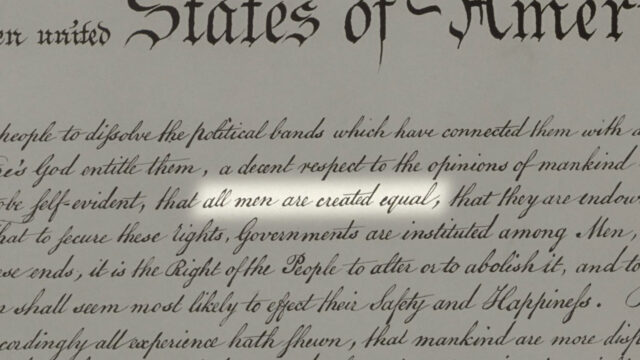Story of Diplomacy
Ebenezer D. Bassett: America’s First African American Chief of Mission
In 1869, Ebenezer D. Bassett was appointed as the U.S. Minister to the Republic of Haiti, making him the first African American Chief of Mission.…

Human rights has not always been a foreign policy priority. However, over the past 100 years, human rights have become a growing part of foreign policy around the world.
In this edition of Diplomacy Classroom, the National Museum of American Diplomacy’s Head of Education and Programs Lauren Fischer and Public Historian Dr. Alison Mann talk through the evolution of U.S. foreign policy and human rights.
In this video, we explore a selection of stories related to human rights and the U.S. Declaration of Independence. Because this document states “all men are created equal,” it has often been cited in struggles for human rights.
Revealed through these stories, and the diplomats involved, is the evolution of human rights as a U.S. foreign policy priority.
Play the video or click the timestamps below to explore the different examples of human rights in U.S. foreign policy.
2:02 Beginning the story with the U.S. Declaration of Independence and early America
6:16 What was Ebenezer Bassett’s response to the crisis as U.S. Chief of Mission during the Haitian Civil War?
12:33 How did the U.S. intervene and respond to the humanitarian crisis in World War I?
17:52 Who are ambassadors and what do they do?
18:54 What became of human rights in the aftermath of WWI? 18:54
20:34 What was the War Refugee Board?
21:52 How does the creation of the United Nations change the conversation on human rights?
22:30 Who was Eleanor Roosevelt and how did she advocate for international human rights?
26:40 What is the background of the Indo-Pakistani War of 1971?
29:31 How was the U.S. Declaration of Independence used to advocate for assistance during the Indo-Pakistani War?
32:39 How did U.S. diplomats advocate for refugees during the Indo-Pakistani War?
The following terms are referenced in this video.